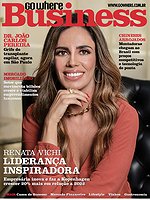
Vogue
O CONHECIMENTO DA VIDA
The Knowledge of Life
Brazil is currently experiencing a boom in practices based on Ayurveda. The reason? The relentless pursuit of greater well-being.
By PAULA ROSCHEL
Research indicates that Ayurvedic medicine originated in India over 3,000 years ago. Its name comes from the Sanskrit ayur (life) and veda (science or knowledge). In practice, it encompasses a series of lifestyle modifications to boost the balance of the body, mind, spirit, and environment through natural therapies, such as changes in diet, intake of botanical alternative medicine, meditation, and massage. In its country of origin, it is a strong pillar of health, akin to what Western medicine represents for us.
However, for science, Ayurveda is still considered knowledge that should be used in conjunction with traditional medicine and not in isolation. This is mainly due to the lack of peer-reviewed scientific studies on the benefits praised by practitioners. Researchers even warn about consulting with a doctor beforehand, especially if taking medications, before taking the first steps on the Ayurveda path. But it only takes a few minutes of conversation with alternative therapy enthusiasts to notice that the practice is spreading more and more among Brazilians.
In São Paulo, at the beginning of November, Ayurvedic massage was integrated into the menu of the renowned Spa Renata França. Upon entering the room, it's clear that the session is different from other relaxing massages. Instead of a massage table, there's a tatami. The technique is also what we might call activation: the therapist will ask you to sit at times, interlace your hands, or move slowly while performing stretches. The massage uses not only the hands but also the feet, forearms, and even the therapist's body weight as a source of robust, yet comfortable pressures. In fact, the sensation is that, physically, everything is "adjusting," especially shoulders, legs, and cervical area. "It's a massage aimed at promoting harmony between body and mind and, in this way, bringing health. And my interpretation of this wonderful massage translated into maneuvers especially dedicated to body stretching, seeking relief from tensions and allowing unparalleled relaxation. The benefits include decreased pain and tension. We use three oils in the protocol: rosemary (to awaken and expand perception and the relationship with ourselves), orange and Sicilian lemon (to harmonize), and lavender (to promote physical relaxation and slow down thoughts). The client chooses according to the day's need," says Renata França. Pregnant women, patients with infectious processes, thrombosis, and injuries should not receive massages. Another craze among celebrities, like Isabeli Fontana, Ana Carolina Bassi, and Carolina Dieckmann, are detox kits, like the one designed by therapist Renata de Abreu (dubbed the Praiana line). You spend seven days investing in products, including morning detox capsules, mouth rinse oil, ingestion oil, fibers, tongue scraper. In addition, a guide with daily wellness guidelines is sent. "Ayurveda believes that true beauty is composed of three vital elements: a well-nourished body, a balanced mind, and a peaceful spirit. In other words, external beauty is a reflection of internal health and well-being," comments Renata de Abreu.
Already on the shelves of natural product stores, there is an infinity of powdered supplements used as vectors of Ayurvedic food well-being. Among them is the famous "golden milk." The drink is a combination of cow's or plant milk, turmeric, and other spices. Among the promised benefits are improved digestion and inflammation. The most recent option is a latte from the diCapri brand. Prepared in a few minutes, which is also a demand from a public with limited time to adopt dietary changes, it promises to improve health in a practical way with its antioxidant properties.
But the question that lingers is whether it's possible to dive into Ayurvedic medicine even without much familiarity with the subject and in a busy routine. "The basic point of Ayurveda is to consider our subjectivities and, more than that, to consider that the body is a microcosm that reflects the macrocosm. And in it, each individual is unique: the same procedure or herbs may work for you and not for me," says Suzy Okamoto, an Ayurvedic therapist specializing in tanmatra chikitsa, therapies related to the five subtle senses.
"There are many variants that determine the Ayurvedic procedures and protocols that also support allopathic medicine, as most people live in large cities, whose external factors, such as pollution, poor diet, and stress contribute to acute imbalance, thus configuring an integrative health solution in the medium and long term. Ayurveda does not define health as an absence of diseases but as much as the physical body, psyche, and soul are in a state of harmony," she concludes.

